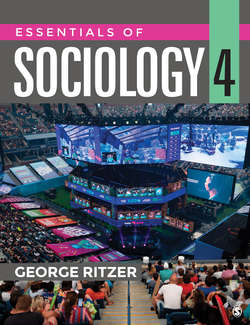Читать книгу Essentials of Sociology - George Ritzer - Страница 76
На сайте Литреса книга снята с продажи.
The Interview Process
ОглавлениеConducting interviews, especially those that are prestructured, usually involves several steps:
1 The interviewer must gain access to the setting being studied. This is relatively easy in some cases, such as when interviewing one’s friends in the student union or at a local bar. However, access would likely be much more difficult if one wanted to interview one’s friends in a sorority house or on the job. People might be less eager to talk to a researcher—to any outsider—in such settings.
2 The interviewer must often seek to locate a key informant (Brown, Bankston, and Forsyth 2013; Rieger 2007). This is a person who has intimate knowledge of the group being studied and is willing to talk openly to the researcher about the group. A key informant can help the researcher gain access to the larger group of respondents and verify information being provided by them.
3 The interviewer must seek to understand the language and culture of the people being interviewed. In some cases this is very easy. For example, it is not a great problem for an academic interviewer to understand the language and culture of college students. However, it is more difficult if the academician interviews people with their own, very different language and culture. Examples might include interviews with members of motorcycle gangs or prostitutes. In these kinds of cases, it is all too easy for the researcher to misunderstand or to impose incorrect meanings on the words of respondents.
4 The researcher must gain the trust of the respondents and develop a rapport with them. Establishing trust and rapport can be easy or difficult, depending on the characteristics of the researcher and the respondents. Well-educated and relatively powerful male researchers may intimidate less privileged female respondents. Older researchers may have trouble interviewing traditional-age college students. Depending on the field site, a researcher’s point of view and (perceived) similarities with the respondents may increase rapport.
Ask Yourself
Have you ever conducted or participated in an interview, perhaps for a job or as part of a study? How closely did it adhere to the guidelines mentioned here?
